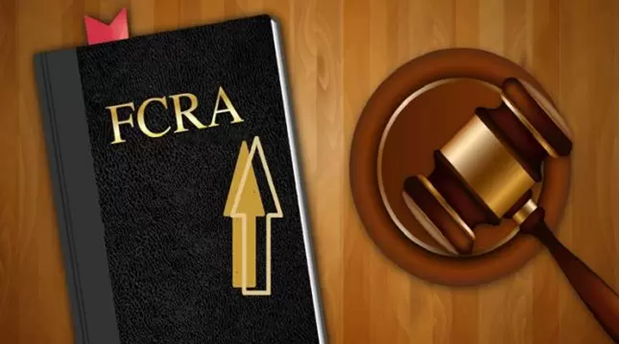Context:
The recent cancellation of Foreign Contribution Regulation Act (FCRA) registration for two prominent non-governmental organizations (NGOs), Centre for Policy Research (CPR) and World Vision India (WVI), has raised concerns and drawn attention to the intricacies of the FCRA framework. The FCRA, enacted in 2010, governs the acceptance and utilization of foreign contributions by NGOs in India. The Union Ministry of Home Affairs (MHA) oversees the implementation of FCRA, ensuring that foreign donations do not compromise the country's internal security.
The Regulatory Framework:
● The FCRA, originally enacted in 1976 and replaced by a new legislation in 2010, underwent further amendments in 2020.
● Through this act, the Ministry of Home Affairs regulates foreign donations to prevent any adverse impact on India's internal security.
● The registration under FCRA is mandatory for any association, group, or NGO intending to receive foreign donations.
● The registration is initially valid for five years and can be renewed if the organization complies with the prescribed norms.
● NGOs registered under FCRA can receive foreign contributions for various programs, including social, educational, religious, economic, and cultural initiatives.
Monitoring Process:
● The monitoring and implementation of FCRA lie within the purview of the Union Ministry of Home Affairs.
● The registration of thousands of NGOs was due for renewal in 2020-2021, but due to the COVID-19 pandemic and amendments to the FCRA Act in 2020, many NGOs faced challenges in completing the renewal process.
● The MHA provided relief up to September 30, 2021, for NGOs with registrations expiring between September 29, 2020, and September 30, 2021, to apply for renewal. The deadline has been extended multiple times, with the latest date set as March 31, 2024.
NGOs Affected and Cancellations:
Since 2015, more than 16,000 NGOs have had their FCRA registrations canceled due to alleged violations. As of January 22, 16,989 FCRA-registered NGOs were active in the country. Nearly 6,000 NGOs had their registration cease to operate from January 1, 2022, as the MHA either refused to renew their applications or the NGOs did not apply. The MHA's stance is rooted in the need to prevent money laundering and terrorist financing risks in the vulnerable NGO sector.
Data from 2023 indicates that a record number of 1,111 associations were granted fresh FCRA registrations. Notably, almost half of the fresh registrations in the religious category were for Christian NGOs. In the same period, out of 1,615 applications received for FCRA registration in 2021 and 2022, 722 were granted clearance, and 225 were rejected.
Foreign Contributions and Financial Details:
The Ministry of Home Affairs revealed that a total of 13,520 associations received ₹55,741.51 crores in foreign contributions during the financial years 2019-2020, 2020-21, and 2021-22. This financial influx highlights the substantial role foreign contributions play in supporting various social, economic, and cultural initiatives undertaken by registered NGOs in India.
CPR and WVI: Reasons for Cancellation:
The cancellation of FCRA registration for CPR and WVI has brought specific allegations to the forefront. The MHA accused CPR of diverting foreign donations to fund "protests and legal battles against developmental projects" and misusing funds to "affect India's economic interests." It further alleged that CPR engaged in the production of current affairs programs, violating FCRA norms. According to the MHA, publishing current affairs programs using foreign funds is prohibited under Section 3 of the FCRA.
CPR's Response:
CPR countered the MHA's allegations, deeming the decision incomprehensible and disproportionate. The organization argued that some of the reasons provided challenge the very basis of a research institution's functioning. CPR emphasized that equating the publication of policy reports, a common practice in research institutions, with current affairs programming is an unjust interpretation of FCRA norms. The controversy surrounding CPR's cancellation underscores the challenges faced by NGOs in navigating the FCRA framework.
WVI's FCRA Violations:
World Vision India, one of the highest recipients of foreign donations among all NGOs registered under the FCRA in 1986, faced allegations of FCRA violations spanning from 2012-13 to 2020-21. The MHA's decision to cancel WVI's registration raises questions about the scrutiny and accountability mechanisms within the FCRA framework. The detailed examination of WVI's alleged violations could shed light on the complexities involved in ensuring compliance with FCRA norms over an extended period.
Conclusion:
The FCRA cancellations of prominent NGOs like CPR and WVI bring to the fore the challenges and controversies surrounding the regulation of foreign contributions in India. The regulatory framework, overseen by the Ministry of Home Affairs, plays a pivotal role in balancing the necessity of foreign support for various programs with the imperative of safeguarding national interests. The cancellations also underscore the need for transparency, accountability, and fair interpretation of FCRA norms. As the FCRA framework continues to evolve, a nuanced understanding of the issues at hand is crucial for fostering a conducive environment for NGOs to contribute meaningfully to India's socio-economic development while adhering to regulatory requirements.
|
Probable Questions for UPSC Mains Exam 1. Examine the role of the Foreign Contribution Regulation Act (FCRA) in regulating foreign donations to NGOs in India. Analyze the potential implications of FCRA cancellations on the functioning of non-profit organizations and their contributions to socio-economic development. (10 marks, 150 words) 2. Critically evaluate the Ministry of Home Affairs' oversight of the FCRA framework. Discuss the challenges associated with managing foreign contributions in the non-profit sector and suggest measures for improving the FCRA to ensure transparency while safeguarding national interests. (15 marks, 250 words) |
Source – The Hindu







